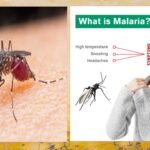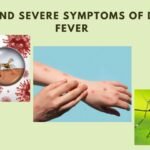How many days does dengue fever last?
Introduction
Dengue fever is an infectious fever and can be prevented through precautionary measures. Although dengue fever usually resolves on its own, in some cases it can become severe and require hospitalization. Let’s understand how long dengue fever lasts. In addition, we will also discuss home remedies to increase platelet count that drops during dengue fever.
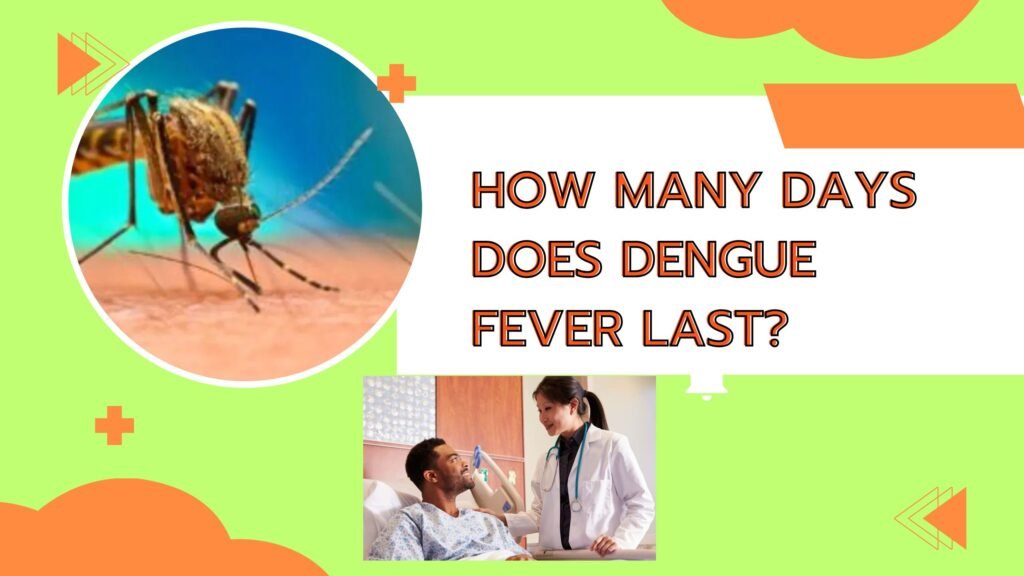
***************************************************
1. What is Dengue Fever?
Dengue fever is an infectious disease caused by the dengue virus. There are four types of this virus:
If a person gets infected with dengue once, they become immune to that specific type of virus, but they still remain susceptible to the other three types.
(Dengue Virus) DENV-1
(Dengue Virus) DENV-2
(Dengue Virus) DENV-3
(Dengue Virus) DENV-4
+++++++++++++++++++++++++++++++++++++++++
2. How Does Dengue Spread?
When a person is bitten by an infected Aedes mosquito, the virus spreads to that person. These mosquitoes usually bite during the daytime, especially in the early morning and evening, and that is when they are most active in attempting to bite.
3. Life Cycle and Duration of Dengue
A person infected with dengue fever typically experiences its effects for about 7 to 10 days.
A. Incubation Phase:
When a person is bitten by an Aedes mosquito, the virus enters their body. This phase lasts for about 2 to 10 days, but symptoms are not noticeable in the beginning.
B. Fever Phase: 2–7 Days
When a person is bitten by a dengue mosquito, they develop a high fever (102°F to 105°F), which is known as the fever phase.
The individual experiences headaches and pain behind the eyes.
They also suffer from muscle and bone pain, and red rashes appear on the skin.
C. Critical Phase: 1–2 Days
In the critical phase of dengue fever, the platelet count in the person’s blood starts to drop, and bleeding may occur from the nose, gums, urine, and other areas. Additionally, the person may develop shock syndrome.
D. Recovery Phase: 2–4 Days
When a person suffering from dengue fever gradually starts to recover, this phase is called the recovery phase. It lasts for about 2 to 4 days. During this time, the platelet count in their body begins to increase, the fever gradually subsides, and their body slowly returns to a normal state.
4. How long does dengue fever last?
The total duration of dengue fever in an infected person is typically 7 to 10 days, but in mild cases, it may last 4 to 5 days. However, in severe cases, it can take 10 to 14 days. If the body is weak, recovery may take 2 to 3 weeks.
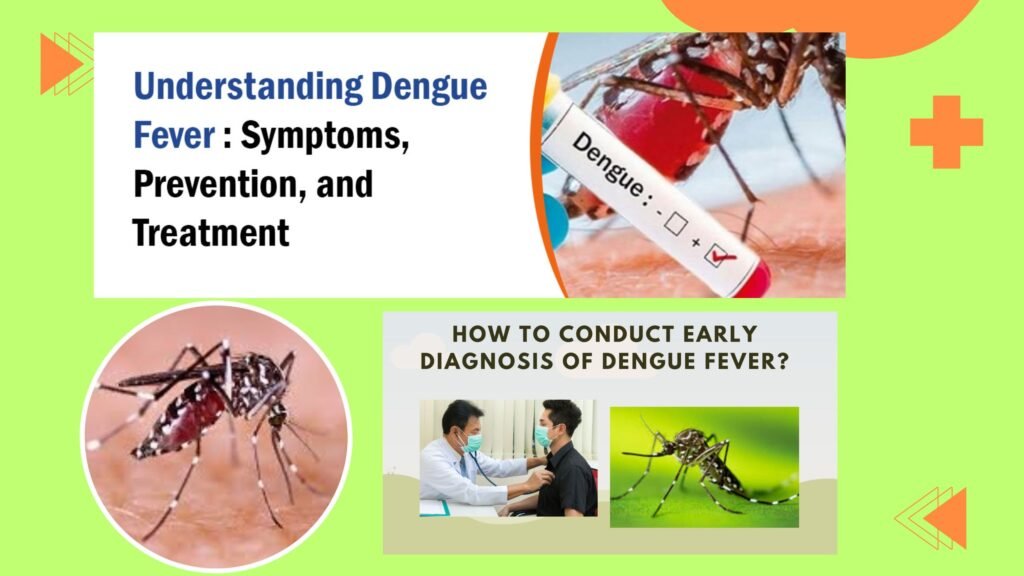
5. Early Symptoms
When a person gets dengue, the early symptoms include high fever, pain behind the eyes, as well as pain in the joints and muscles. The person experiences very little appetite and feels weakness and fatigue in the body.
6. Severe Symptoms
In severe cases of dengue fever, symptoms include a significant drop in platelet count, low blood pressure, and organ failure (liver, kidney, lungs). The person may also experience dizziness and loss of consciousness.
7. Diagnosis (How to Test?)
To confirm if a person is infected with dengue, the following tests are conducted:
- CBC (Complete Blood Count)
- NS1 Antigen Test
- IgM and IgG Antibody Test
- Platelet Count Monitoring
8. Treatment
There is no specific antiviral medicine for dengue. The treatment focuses on managing symptoms and helping the body recover:
Do’s:
What should a person suffering from dengue do? The patient should take plenty of rest for an extended period. They should drink plenty of fluids and only take paracetamol medication as advised by a doctor. Always stay in contact with the doctor.
Don’ts:
What should a person suffering from dengue avoid? They should not take aspirin or ibuprofen. Additionally, they should not self-medicate or take medicines without doctor’s advice. Platelet transfusions should not be done unless absolutely necessary.
**************************************************
How many days does dengue fever last? How many days does dengue fever last?
9. Home and Ayurvedic Remedies
The home and Ayurvedic treatments for a person suffering from dengue fever are as follows:
- Use papaya leaf juice.
- Consume Giloy and also drink coconut water.
- A person with dengue should drink tea made from basil (tulsi) and ginger.
- To increase the platelet count in the blood, consume pomegranate and beetroot.
10. Preventive Measures Against Dengue
Preventive Measures Against Dengue: Detailed Explanation
- Use Mosquito Nets:
Using mosquito nets, especially while sleeping, helps prevent mosquito bites, which are the primary mode of dengue transmission. Nets act as a physical barrier to keep infected mosquitoes away during night and day rest periods. - Prevent Water Stagnation:
Mosquitoes breed in stagnant water. To reduce their population, it is essential to eliminate any water collection around homes, such as in flower pots, buckets, old tires, clogged drains, and containers. Regularly empty and clean these areas to stop mosquitoes from breeding. - Wear Full-Sleeve Clothing:
Covering the body with full-sleeve shirts, long pants, and socks reduces the exposed skin area, thereby minimizing the chances of mosquito bites, especially during early morning and late afternoon when Aedes mosquitoes are most active. - Use Mosquito Repellents:
Applying mosquito repellent creams or sprays on exposed skin and clothing can effectively deter mosquitoes. These repellents contain chemicals that mosquitoes find unpleasant, reducing the likelihood of bites. Use approved and safe repellents and reapply as needed according to the instructions.
Following these detailed preventive measures can significantly reduce the risk of contracting dengue fever.
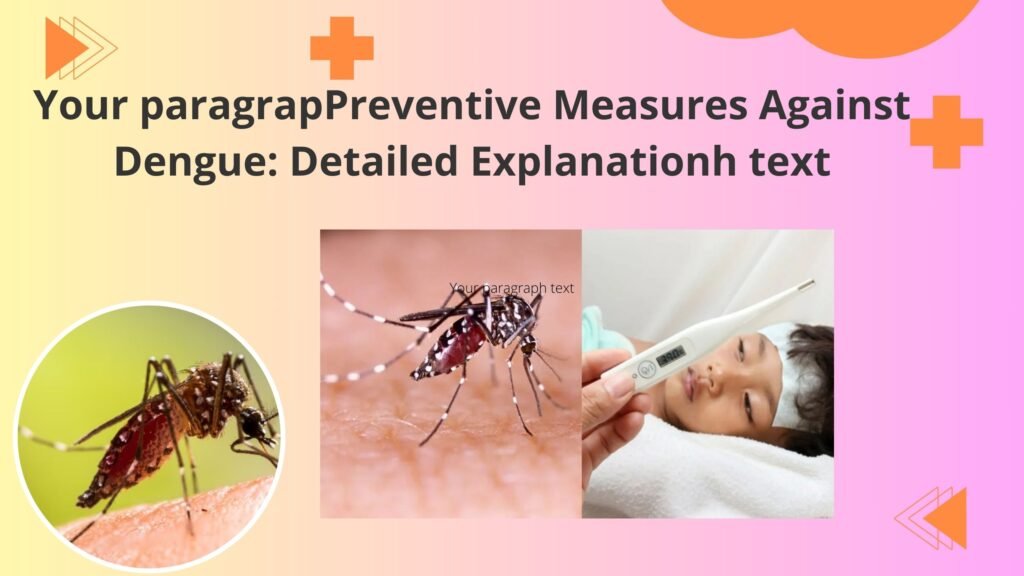
***********************************************************
11. Recovery After Dengue Fever
- A person recovering from dengue fever may have a weak body, so rest is essential.
- The patient should consume a high-protein diet.
- Eat fruits and drink fresh juices.
- Get regular check-ups as advised by the doctor.
12. When to See a Doctor?
- If the high fever lasts for more than 3 days.
- If the platelet count drops rapidly.
- If the person experiences dizziness or loss of consciousness.
- If there is difficulty in urination or breathing.
Conclusion
Dengue fever is a serious illness, but with timely diagnosis, proper care, and adequate rest, it can be prevented and managed effectively. The fever typically lasts for 7 to 10 days, but full recovery may take 2 to 3 weeks. If we take precautions and seek medical treatment promptly, complete recovery from dengue is possible.
**********************************************************************************
https://en.wikipedia.org/wiki/Dengue_fever
https://pram123.com/what-is-the-first-symptom-of-dengue-fever-2025/
*****************************************************************************************************




